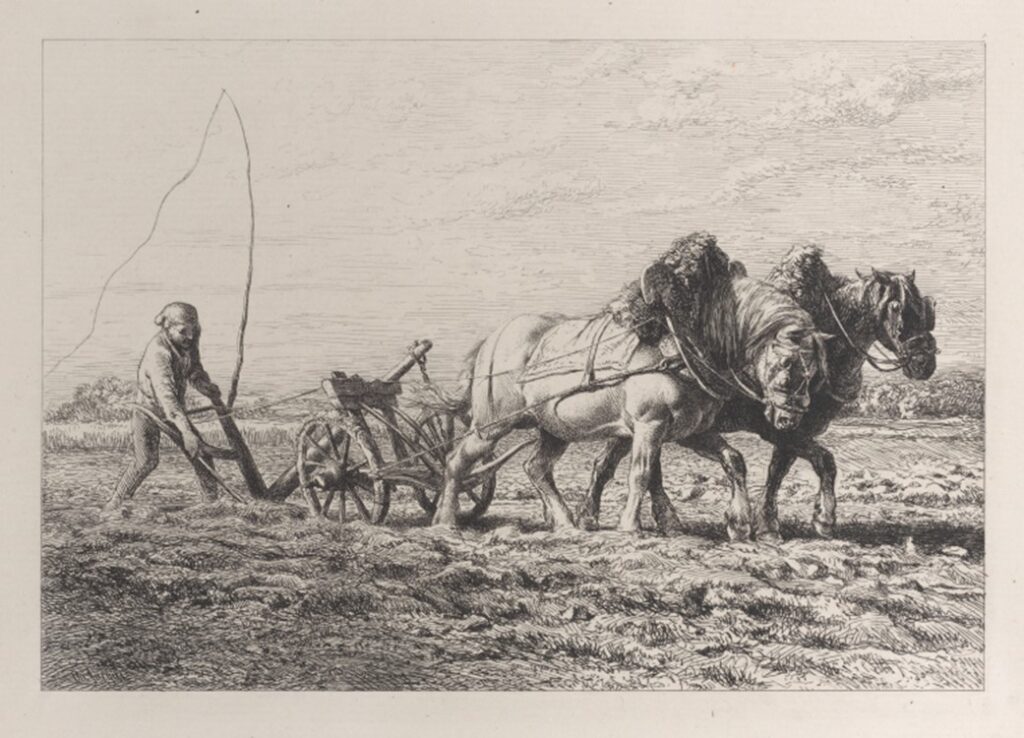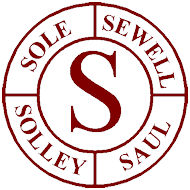By Lynn Boyle
This article was published in the August 2024 edition of Soul Search, the Journal of The Sole Society
My great great grandmother, Jane Saywell, was probably born ‘on the road’ in 1831. Her father Richard Saywell was an itinerant ballad singer who roamed the countryside with no fixed address taking along his wife and children of whom Jane was the youngest. The others were Elizabeth (b 1815), Ann (b 1817), Tobias (b 1819), Sarah (b 1826) and Richard (Jr) (b 1827).
Richard (Sr) hailed from the village of Eynsham in Oxfordshire (possibly born in 1793) but it’s unclear why he left to roam about doing odd jobs where he could and singing at fairs. I did find a clue, however, whilst looking through FindmyPast’s collection of newspapers. I noticed an advert in a local paper, dated 1817, for the sale of a row of cottages, which listed the current tenants – one of which was a Richard Saywell. So maybe he was evicted from his home when the landlord changed. He did keep going back to his village to baptise each child and also probably to claim Poor Relief.
All this changed, however, when Jane was one year old and when her father became the first tenant of a new allotment scheme in 1832 on part of the estate of the Hon. Thomas Parker. This might have been the front-runner of a similar more organised scheme set up later in another part of Oxfordshire as there was an increasing awareness of the plight of the rural poor. His plot consisted of a few acres on which he grew vegetables to sell at local markets and all the family helped. These allotments were situated about two miles or so out of Eynsham, but he couldn’t afford to rent a house there so instead he ‘pitched his tent’ on the land initially and then went on to build a small dwelling there out of any materials to hand including an abandoned old cart and some stones. A few years later he was the subject of an article in The Labourer’s Friend journal which used him as an example of what could be achieved. They described him as ‘previously wandering the country ballad singing, etc and then, as he termed it, “by some strange thought which possessed his mind” applied for a small strip of land on which he could maintain his family in a better way, for (to use his own words) he was become tired of the sort of life he was then leading’. But it all came to an end in 1839 when he died. His death prompted an obituary in The Oxford Times praising him for his endeavours and quoting the local gamekeepers who had noticed on summer evenings ‘Richard and the little ones hard at work and then again at 3am the next morning’. The newspaper concludes by saying ‘may the allotment system go on and flourish and in a little time it is hoped that we shall see England blessed with a happy peasantry’.
After her husband’s death his wife (also called Jane) stayed on for several years, presumably with the help of some of her children. The two sons, however, would have become increasingly unreliable as they fell into crime. Tobias spent time in prison for stealing a horse from nearby Cogges Farm at Witney. And then, when he later stole sheep in another county, he was deported to Australia in 1850 and never came back.

Richard (Jr) was a prolific poacher throughout the 1840s. He was a member of a notorious gang who laid traps and shot game, even breaking off from these activities on one occasion to steal some towels from the washhouse of Eynsham School. Each conviction earned him one or two months in prison with hard labour but with the option instead of a heavy fine which would no doubt have been beyond his means, but in any case, he said he ‘wouldn’t pay that even if he had a sack full of money’. The newspaper collection on FindmyPast revealed about ten court trial reports and there was one in particular, in 1848, which caught the attention of the then Secretary of State, Lord Grey, who was known to be sympathetic to the poor country labourers. There were copies of his letters about the case and the Pardon he ordered which was reported in all the national newspapers. There was even the letter which Richard’s mother had written (or written for her) pleading for him to be let off so that he could help with the harvest.
At some point Richard’s widow, Jane (Snr), gave up the allotment and moved to Eynsham and in 1851 was described as a pauper; she died in 1855. The eldest girl, Elizabeth, had found work as a live-in servant somewhere local but I can find no trace of Ann or Sarah. Richard married Sophia Buckingham in 1852 and lived in Eynsham. From then on there were no more convictions but after 1871 there are no more records, and he disappears.
But I do know what became of my ancestor, Jane – she went north. She is absent from the 1851 census and when and how she travelled up to Bradford is a mystery, but she is there in 1853 marrying a Yorkshireman. She later moved on to Leeds settling in the very poorest area of the city and surviving two husbands who both succumbed to fever. It seems she had swapped a harsh, precarious rural life for a grim urban one. An eventful life but a hard one.

This article first appeared in the August edition of the Oxford Family Historian and is reprinted with kind permission of the editor and author
